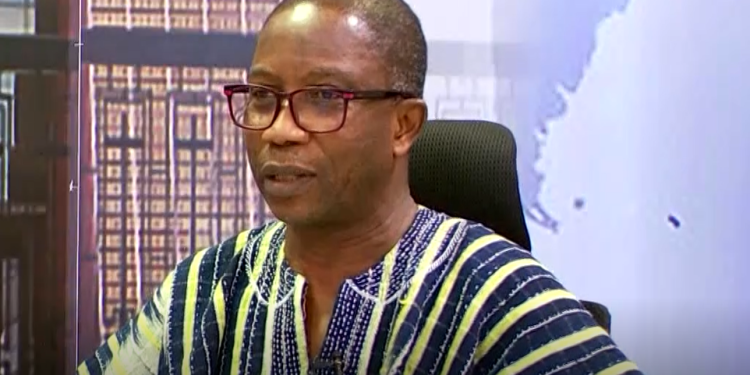Dr. Yao Graham, Coordinator of the Third World Network, has vehemently called for the abolishment of the COVID-19 levy, asserting its redundancy in the post-pandemic era. Implemented during the peak of the global health crisis by the previous administration, the levy has faced sustained criticism for its continued existence. Dr. Graham argues that the justification for the levy has vanished with the receding pandemic, comparing it to the absence of a malaria tax despite the long-standing presence of the disease. His call for abolition echoes broader concerns regarding the appropriateness and longevity of pandemic-era fiscal measures now that the immediate crisis has abated. This raises questions about the balance between emergency revenue generation and long-term economic well-being, especially for vulnerable populations.
Dr. Graham’s remarks align with the pronouncements of Finance Minister-Designate Dr. Cassiel Ato Forson, who has indicated the intention of a potential John Dramani Mahama-led administration to abolish taxes like the E-Levy and Betting Tax in its initial budget. Dr. Forson proposes addressing the resultant revenue shortfall through expenditure cuts, a strategy that raises questions about its feasibility and potential impact on public services. This approach reflects a shift in fiscal priorities, potentially prioritizing economic stimulus and reducing the tax burden on citizens over maintaining existing levels of government spending. The debate centers on the optimal approach to balancing budgetary needs with economic growth and social equity.
Conversely, Dr. Gideon Boako, Member of Parliament for Tano North, has expressed apprehensions about potential new taxes being introduced to compensate for the revenue lost from the removal of the E-Levy and Betting Tax. This highlights the complex balancing act facing policymakers when adjusting tax structures. While removing unpopular taxes can garner public support, it necessitates finding alternative revenue sources to maintain essential government services and programs. The potential for new taxes underscores the need for careful consideration of the overall impact of tax reforms, ensuring that any changes are equitable and sustainable.
Dr. Graham’s critique of the E-Levy focuses on its disproportionate impact on low-income individuals, arguing that it places an undue burden on the most vulnerable segments of society. He contends that the E-Levy represents a regressive form of taxation that exacerbates existing inequalities and hinders economic activity. This emphasizes the importance of considering the distributional effects of tax policies and ensuring they don’t disproportionately affect those least able to bear the burden. The debate surrounding the E-Levy highlights the tension between raising revenue and maintaining social equity, emphasizing the need for a taxation system that is both effective and fair.
Similarly, Dr. Graham opposes the retention of the Betting Tax, citing its negative consequences for youth, particularly the encouragement of potentially addictive and socially disruptive behavior. He argues that the tax, rather than generating revenue, should be used as a deterrent to discourage gambling among young people who may be particularly susceptible to its allure, especially in the context of widespread unemployment. This raises concerns about the ethical implications of using taxation as a tool to influence social behavior and the potential unintended consequences of such policies.
Beyond advocating for the abolition of existing levies, Dr. Graham proposes the implementation of an Emission Tax to promote environmental sustainability and the development of a green economy. He champions tax reforms that foster a fairer and more progressive system, reducing the financial strain on citizens while simultaneously diversifying revenue streams for the government. This reflects a broader shift towards incorporating environmental considerations into fiscal policy, using taxation as a mechanism to incentivize environmentally responsible behavior and contribute to sustainable development. The call for a more progressive tax system underscores the need for a comprehensive approach to tax reform that considers both economic and social objectives, aiming to create a more equitable and sustainable future.
In conclusion, the debate surrounding these tax measures underscores the complexities of balancing revenue generation with social equity, economic growth, and environmental sustainability. The calls for abolition, combined with proposals for new taxes, highlight the ongoing need for careful evaluation and reform of the tax system to ensure its effectiveness, fairness, and alignment with broader societal goals. The discussion surrounding the COVID-19 levy, E-Levy, Betting Tax, and the proposed Emission Tax reflects a broader societal conversation about the role of taxation in shaping a just and sustainable future.














